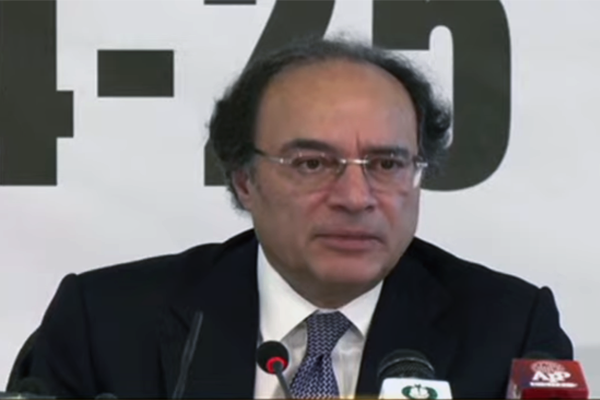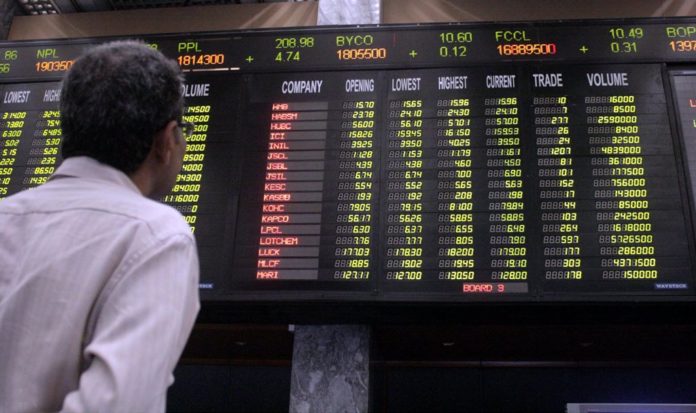PTBP Web Desk
Finance Minister Muhammad Aurangzeb announced on Wednesday that the government is moving ahead with a major policy shift aimed at deregulating the sugar and wheat sectors, signaling a structural change in how agricultural commodities are managed in Pakistan. The announcement was made while addressing the Federation of Pakistan Chambers of Commerce and Industry (FPCCI), where the minister emphasized the need for the government to step back from the value chain to allow market forces to function freely.
According to Aurangzeb, the government’s role in these commodities has remained extensive for decades, leading to distortions, inefficiencies, price volatility, and heavy fiscal burdens. “Both sugar and wheat are moving towards deregulation. However, this has to be end-to-end. The government needs to get out of the entire value chain, and that is where we are heading,” he remarked.
This move aligns with long-standing demands from business groups, exporters, and international lenders who have repeatedly urged Pakistan to adopt market-based pricing to enhance efficiency and reduce fiscal losses.
For reference, the FPCCI plays a key role in representing business communities across the country. More information on their advocacy efforts can be found on their official platform:
External Link: https://www.fpcci.org.pk
A major highlight of the minister’s address was the separation of tax policy formulation from the Federal Board of Revenue (FBR). The responsibility has now been shifted to the Finance Division, which will develop the upcoming federal budget through the newly established Tax Policy Office.
This reform responds directly to longstanding criticism from the business community regarding policy inconsistency, abrupt regulatory changes, and lack of consultation during budget-making. Aurangzeb explained that the shift will help ensure stable and predictable tax policies, which are essential for investors and exporters planning long-term operations.
The minister further added that tax reforms are being carried out in consultation with private sector stakeholders, signaling a more collaborative approach to economic governance.
Aurangzeb reiterated the government’s commitment to achieving export-led growth, emphasizing that Pakistan must broaden its export base to remain globally competitive. “Every single sector has to export,” he said. “Whether it’s 2%, 5%, or 10%—sectors have to export. Only then can we say they are competitive.”
This message aligns with Pakistan’s broader growth strategy, which shifts focus from internal consumption and import dependency toward increasing exports, attracting foreign investment, and boosting industrial productivity.
For related analysis on export strategies, readers may refer to internal industry insights here:
Internal Link: /economy/export-growth-pakistan
To strengthen industrial performance, Prime Minister Shehbaz Sharif has formed eight new working groups focusing on challenges faced by Pakistani industries. These groups include participation from government officials, sector specialists, and representatives from the Special Investment Facilitation Council (SIFC). Aurangzeb noted that as these groups progress, business chambers will also be included to ensure that industry voices are integral to policymaking.
The minister stressed that the government aims to reduce tariffs on industrial raw materials and intermediate goods to ease production costs and enhance export competitiveness. He acknowledged that the textile sector remains the backbone of Pakistan’s export portfolio, while sectors such as information technology (IT) and pharmaceuticals have shown encouraging growth recently.
Aurangzeb also confirmed that discussions on revisiting the provincial share in federal divisible pool resources will be taken up during the upcoming National Finance Commission (NFC) meeting. The resource-sharing formula has remained a contested issue, with provinces arguing for greater autonomy and revenue allocation.
Regarding Pakistan’s mineral development, the finance minister said that operations at the Reko Diq copper and gold mining project are expected to begin by 2028, with initial export revenues estimated at $2.8 billion. Aurangzeb termed Reko Diq a “milestone for Pakistan’s economy”, noting that it could significantly uplift the national revenue base while enhancing investor confidence.
Concluding his remarks, Aurangzeb expressed cautious optimism about Pakistan’s economic direction. He noted that improving macroeconomic indicators and favorable geopolitical conditions have created an opportunity to accelerate growth and attract foreign investment. However, he emphasized that sustained reforms, policy consistency, and export competitiveness are crucial for success.




